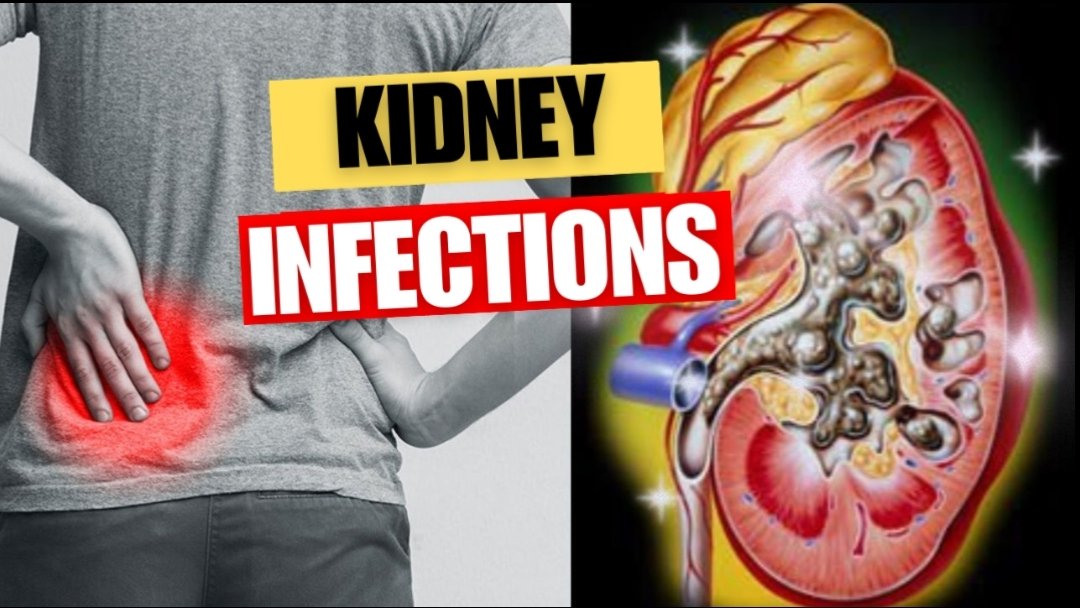Kidney infections, also known as pyelonephritis, can be a painful and serious condition affecting the kidneys.
They occur when harmful bacteria enter the urinary tract and travel up to the kidneys, leading to an infection.
While kidney infections are treatable, they require prompt medical attention to prevent complications.
Table of Contents
What Causes Kidney Infections?
The primary cause of kidney infections is the presence of bacteria in the urinary tract. These bacteria typically enter through the urethra and multiply in the bladder, leading to a urinary tract infection (UTI).
From there, they can travel up to the kidneys, causing an infection.
Certain factors can increase the risk of developing a kidney infection, including:
1. Urinary Tract Abnormalities: Structural issues in the urinary tract, such as kidney stones or an enlarged prostate, can hinder the flow of urine and increase the risk of infection.
2. Weakened Immune System: Conditions that weaken the immune system, such as diabetes or HIV/AIDS, can make individuals more susceptible to infections, including kidney infections.
3. Catheter Use: People who require long-term catheterization are at a higher risk of developing urinary tract infections, which can progress to kidney infections if left untreated.
Sii Daalaco: Youtubekeyga
Symptoms of Kidney Infections
Kidney infection often present with a variety of symptoms, which may include:
1. Fever and Chills: A high fever accompanied by chills is a common sign of a kidney infection, indicating that the body is fighting off the infection.
2. Back, Side, or Groin Pain: Pain in the back, side, or groin area, typically on one side of the body, is a hallmark symptom of a kidney infection.
The pain may be severe and persistent.
3. Urinary Symptoms: Individuals with kidney infections may experience frequent, urgent, or painful urination.
Urine may appear cloudy or have a strong odor.
4. Nausea and Vomiting: Some people with kidney infections may experience nausea, vomiting, or loss of appetite.
5. Fatigue: Generalized weakness or fatigue may occur as the body fights off the infection.
Diagnosing and Treating Kidney Infections
If you suspect you have a kidney infection, it’s crucial to see a healthcare provider promptly.
Diagnosis typically involves a physical examination, urine tests to detect bacteria and white blood cells, and sometimes imaging tests such as a CT scan or ultrasound to assess the kidneys’ condition.
Treatment for kidney infection usually involves a course of antibiotics to eliminate the bacteria causing the infection.
It’s essential to take the full course of antibiotics as prescribed by your healthcare provider, even if you start feeling better before you’ve finished the medication.
In addition to antibiotics, your healthcare provider may recommend pain relievers to alleviate discomfort and fever reducers to reduce fever.
Sii Daalaco: Facebook pagekeyga
Preventing Kidney Infections
While kidney infection can be challenging to prevent entirely, there are steps you can take to reduce your risk:
1. Stay Hydrated: Drinking plenty of water helps flush bacteria from the urinary tract, reducing the risk of infection.
2. Practice Good Hygiene: Wiping from front to back after using the bathroom helps prevent the spread of bacteria from the anus to the urethra.
3. Urinate Frequently: Avoid holding urine for extended periods, as this can allow bacteria to multiply in the bladder.
4. Avoid Irritants: Limiting the consumption of irritants such as caffeine and alcohol can help maintain urinary tract health.
5. Seek Prompt Treatment for UTIs: If you experience symptoms of a urinary tract infection, such as burning during urination or frequent urination, seek medical attention promptly to prevent the infection from spreading to the kidneys.
Conclusion
Kidney infections can be painful and potentially serious if left untreated.
Recognizing the symptoms and seeking prompt medical attention is crucial for effective treatment and preventing complications.
By understanding the causes, symptoms, and preventive measures, you can take proactive steps to protect your kidney health.
Look about this: Measles: A Highly Contagious but Preventable Disease




Pingback: Kidney Stones 2024